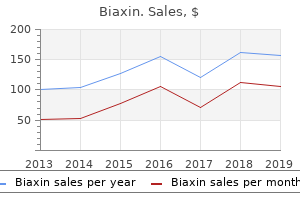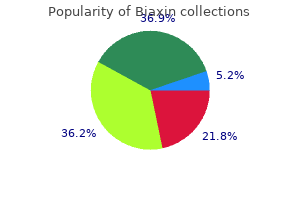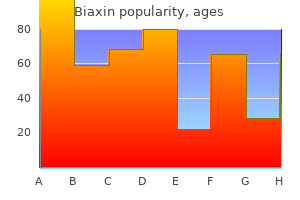"Purchase biaxin visa, gastritis diet ÷åðíîáûëü".
By: W. Derek, M.A., M.D.
Vice Chair, East Tennessee State University James H. Quillen College of Medicine
This weight-loss plan uses a liquid formula rather than foods gastritis symptoms patient buy biaxin from india, making clients dependent on a special device (the formula) rather than teaching them how to treating gastritis through diet discount biaxin amex make good choices from the conventional food supply gastritis diet watermelon order 250 mg biaxin visa. It provides no information about dropout rates, the long-term success of clients, or weight maintenance after the program ends. Because the milk shake has been fortified, all vitamin and mineral needs are covered as well. People of all sizes eagerly try the best diet on the market ever, hoping that this one will really work. Sometimes these diets seem to work for a while, but more often than not, their success is short-lived. Brownell, an obesity researcher at Yale University, describes this phenomenon: "When I get calls about the latest diet fad, I imagine a trick birthday cake candle that keeps lighting up and we have to keep blowing it out. New fad diets can keep making outrageous claims because no one requires their advocates to prove what they say. Fad diet gurus do not have to conduct credible research on the benefits or dangers of their diets. They can simply make recommendations and then later, if questioned, search for bits and pieces of research that support the conclusions they have already reached. Diet and health recommendations should follow years of sound research that has been reviewed by panels of scientists before being offered to the public. Because anyone can publish anything-in books or on the Internet-peddlers of fad diets can make unsubstantiated statements that fall far short of the truth but sound impressive to the uninformed. They may start with one or more actual facts but then leap from one erroneous conclusion to the next. Anyone who wants to believe these claims has to wonder how the thousands of scientists working on obesity research over the past century could possibly have missed such obvious connections. Fad diets come in almost as many shapes and sizes as the people who search them out. Regardless of their names, many popular diets espouse a carbohydrate-restricted or carbohydratemodified diet. Whether restricting overall carbohydrate intake or replacing certain "bad" carbohydrates with "good" carbohydrates, these diets tend to overemphasize protein. This highlight examines some of the science and the science fiction behind a few carbohydrate-restricted or carbohydrate-modified, high-protein fad diets. Foods such as meats and milk products that need to be selected carefully to limit saturated fat can be eaten with abandon on this diet. Grains, legumes, vegetables, and fruits that consumers are told to eat in abundance can now be ignored. For some people, this is a dream come true: steaks without the potatoes, ribs without the coleslaw, and meatballs without the pasta. Who can resist the promise of weight loss while eating freely from a list of favorite foods? To lure dieters in, proponents of fad diets often blame current recommendations for our obesity troubles. They claim that the incidence of obesity is rising because we are eating less fat. Such a claim may impress the naive, but it sends skeptical people running for the facts. Liebman, Weighing the diet books, Nutrition Action Healthletter, January/February 2004, pp. Jeor and coauthors, Dietary protein and weight reduction: A statement for healthcare professionals from the nutrition committee of the Council on Nutrition, Physical Activity, and Metabolism of the American Heart Association, Circulation 104 (2001): 1869Â1874. You can lose weight by eating a specific ratio of carbohydrates, protein, and fat. High-protein diets are popular, selling more than 20 million books, because they work.

Mendelsohn chronic gastritis risks buy generic biaxin on line, Anne Seery HealthySteps: Transforming the Promise of Pediatric Care and Tackling Evaluation Questions of the Future Rahil Briggs gastritis diet 7-up cheap 500mg biaxin with mastercard, Trenna Valado gastritis mercola cheap 250 mg biaxin free shipping, Brandon Aylward, Miguelina German Linking Literacy Programs in Pediatric Primary Care to the Community through Partnership with Public Libraries Caitlin Canfield, Erin Roby, Catherine Workman, Anne Seery, Shari Levine, Alan L. Mendelsohn Initial Impacts of the Smart Beginnings Project Linking Pediatric Primary Care and Home Visiting Daniel S. Shaw, Elizabeth B Miller, Caitlin Canfield, Lindsay Taraban, Erin Roby, Mackenzie Danielle Marie Whipps, Julia Honoroff, Anne Gill, Alan L. Morris (Event 2-154) Paper Symposium Key 9 (Hilton Baltimore, Level 2) Friday, 1:00pm-2:30pm 2-154. Staples Linking Sleep with Kindergarten Functioning, and Bedtime Activities that Support Child Sleep Corey Jean Whitesell, Karen Bierman, Orfeu M. Kochel Moral Dimensions and Friendship Security Moderate Trajectories of Intolerance of Uncertainty in Schoolage Children Bianca Panarello, Ryan Joshua Persram, Melisa Castellanos, William M. Bukowski (Event 2-157) Federal Agency Symposium Key 12 (Hilton Baltimore, Level 2) Friday, 1:00pm-2:30pm 2-157. Bridges Education Research Funding Opportunities at the Institute of Education Sciences Caroline Ebanks, Amy Sussman the Scientific Peer Review Process for Institute of Education Sciences Research Grant Applications Lisa J. This will include the stages of application processing and peer review, how resubmissions are handled, how peer reviewers are recruited for peer review panels, how reviewers are trained, and what feedback is provided to applicants. An interactive session is planned, with attendees encouraged to ask questions and relate experiences throughout the presentation. Sloutsky Asking Children to Make Predictions: An Effective Strategy to Activate Prior Knowledge and Improve Learning? Finding the Right Journal for a Research Article Session Organizers: Sarah Elizabeth Murphy, Erin E Hillard Speakers: Noel Card, Rob Crosnoe, Sarah J SchoppeSullivan Integrative Statement: Often times significant energy is dedicated to writing an article itself, with little time spent considering where to submit until after the article is written. The discussants welcome attendee questions and plan to cover a range of topics related to the publication process. Friday, 2:30pm-3:45pm (Event 2-163) Poster Session Exhibit Hall B (Baltimore Convention Center, Level 1) Friday, 2:30pm-3:45pm 2-163. Poster Session 08 Attention, Learning, Memory 1 Associations Between Sleep, Memory, and Hippocampal Volume in 4- to 8-year-olds Elianna Lopez, Tracy Riggins Attentional Orienting in Infancy is Associated with Temperament and Cognitive Development Berna Uzundag, Sumeyye Koskulu, Aylin Kьntay Attention to Social Events, Social Competence, and Vocabulary Size at 18 Months Elizabeth V Edgar, Myriah E McNew, James Torrence Todd, Lorraine E Bahrick Component Processes Involved in the Self-Derivation of New Knowledge in Four-Year-Olds Ana Maria Hoffmann, Patricia Bauer Development of memory for associations to similar versus distinct objects Ji-Soo Kim, Rebecca Gуmez Neural Correlates of Perceptual Processing of Spatially Cued Visual Targets in Infancy William Joseph Chollman, Kelly Roth, Emily Grimes, Cait Berosh, Mary Alison Bennett, Mikhayla Stover, Greg D. Reynolds Relationships between Behavioral Performance and Neural Processes of Inhibitory Control in Children Erica Lescht, Amanda Hampton Wray Social-Emotional Development for Children with Identified Developmental Concerns: the Impact of Parenting and Executive Function Courtney Boise, Lisa Knoche (Event 2-161) Paper Symposium Ruth (Hilton Baltimore, Level 1) Friday, 1:00pm-2:30pm 2-161. Williams, Sheila Crowell, Elisabeth Conradt, Trafton Drew Infant Brain Rhythms in Parent-Infant Play Alana Anderson, Sammy Perone, Maria Gartstein, Elizabeth Youatt Neural correlates for working memory in children Marie Arsalidou, Alba Agostino, Zachary Yaple Neural Response to Social Exclusion, Depressive Symptoms, and Substance Use in Mexican-Origin Adolescents Sarah Jean Beard, Richard W. Nera Bozin, Erika Nurmsoo Do children recognize the role of physical activities on weight? Yvonne K Ralph, Mandy J Maguire Genetic and Environmental Influences on the Triple Code Model of Mathematics Susan Gross, Carol Gross, Lee Thompson, Stephen Petrill 14 26 27 15 16 17 28 29 30 18 31 Biological Processes: Psychophysiology 19 Attention Deficits Associated With Immunoregulation Following Early Adversity: the Cost of Containing Latent Viruses Bonny Donzella, Brie M Reid, Melissa L. Verdine, Lindsey Foster, Siffat Islam, Roberta Michnick Golinkoff, Kathy Hirsh-Pasek Is Batman good at math? The Self-Distancing Effect on the Approximate Number System Carolyn Baer, Darko Odic Link between Poor Sleep and Lower Cognitive Achievement in Urban, Low-Income Preschool Children Cristina L Codario, Swetha Tummala, Henry D. Maughan, Jenny Kwon, Bikramjit Sekhon, Julianne Wanner, Ian E Murphy, Marissa Laws, Alexandra S Miragaia, Jessica Levenson, Nicole Letourneau, Jeanette Trauth, Judy L Cameron Narrowing the math achievement gaps with personalized active learning opportunities Paulo Carvalho, Andrйs Gуmez-Colunga, Steve Ritter, Ken Koedinger Nucleus Accumbens Activation Differs Across Sensation-seeking and Age. Farran, Annette Karmiloff-Smith, Jo Van Herwegen Decoding the time course of face processing in Williams Syndrome Ines Mares, Emily K. Smith Heterogeneity of eye-tracking stimuli used with young children at risk for autism: Paradigm review Jessica E Blume, Chanaka N. Williams, Adam Winsler 35 46 36 47 37 48 38 49 39 50 40 Developmental Psychopathology 51 Are Perfectionistic Strivings Adaptive? Links with Preadolescents Interpersonal Functioning and Mental Health Outcomes Natasha Renee Magson, Ella L. Oar, Jasmine Fardouly, Carly J Johnco, Ron M Rapee Association of Maternal Emotion Regulation and Dissociation with the Emergence of Early Child Dissociative Behaviors. Handley, Jody Todd Manly, Robin Sturm, Sheree Toth Negative Mood and the Development of Internalizing and Externalizing Behaviors: the Role of NegativeIntrusive Parenting Marta Benito-Gomez, Guan Wang, W. Roger MillsKoonce Parental concern over mistakes and criticism moderate the relation between dysregulated fear and child anxiety Sydney Marie Risley, Lauren Jones, Elizabeth J Kiel Parental Conflict, Attachment Anxiety, and Somatic and Depressive Symptoms: Differential Associations by Family Structure Hung-Chu Lin, Yang Yang, Luke Elliott the Impact of Neighborhood Safety and Parenting on Adjustment in Early and Late Childhood Michele R Smith, Liliana J.

To avoid confusing a class of beginning undergraduate students gastritis celiac order biaxin cheap online, focus on the fundamentals gastritis diet ôèëüìû purchase biaxin with paypal, use generalizations www gastritis diet com biaxin 500 mg with visa, and do not give too many exceptions to the rule. For example, instead of telling students how to present a logical argument, present a logical argument and help them analyze it. Instead of describing how to solve a problem, solve it on the board and label the steps as you go along. You can help students recall important concepts by pairing abstract content with a vivid image or a concrete association. For example, in describing velocity a physics professor uses the example of a speeding bullet. Your students may not grasp the importance of a point unless you announce it: "This is really important, so listen up" or "The most important thing to remember is. Indeed, research suggests that students are focally aware of the lecture content only about 50 to 60 percent of the time. By repeating major points several times in different words, you maximize the chances that every student will eventually understand. In some disciplines you may be able to develop the same point in two or three different modes: mathematically, verbally, graphically. Students will have trouble understanding a second topic if they are still grappling with the first. Give students a chance to catch up by building in redundancy, repetition, and pauses. It is easy for students to feel anonymous or isolated in large courses and difficult for them to get to know one another for support and group study. By nature, large courses include students of varying abilities but offer little opportunity for individual attention. The following suggestions are designed to help you help your students feel that their presence is noted and does matter. The best lecturers give the impression that they are talking to a few friends, sharing their humor and their enthusiasm for their field. Let your students see that you are a person whose interests, emotions, and values extend beyond the classroom. Before class begins, one science faculty member who loves music plays the music of the composer or musician whose birthday is closest to that day. A large lecture room will seem smaller if you stand in front of the lectern, not behind it. If you have graduate student instructors, join with them in distributing class materials. In an impersonal classroom, students feel less responsibility toward other class members and the instructor (Gleason, 1986). Students who feel anonymous in class are less motivated to learn and less likely to do the required work (Brock, 1976). Conversely, students who feel a sense of community pay more attention and participate more. On the first day of class, consider having students introduce themselves to one or two others sitting nearby. If your class does not have sections, explain how study groups can work, and set aside class time to organize such groups (see "Collaborative Learning"). Or have the class form teams of two or three students to submit test questions, work on in-class projects, and so on. Ask students to exchange telephone numbers with at least two other people in the class. While it will not be possible to meet all students in a large lecture class, nor should you feel U compelled to try, it is worthwhile to get to know a few students. Some faculty ^"extend an open invitation for students to drop by a cafe for coffee and conversation.
Buy biaxin 250 mg visa. What Happens When You Drink Alcohol on an Empty Stomach?.
The fascination with this enterprise is broad and enduring gastritis vitamin d deficiency buy discount biaxin 500mg on-line, and for very good reason gastritis from coffee purchase 250 mg biaxin with visa. And far from being too expensive chronic antral gastritis definition buy biaxin, the program would have cost about one attack helicopter per year. He speculates that for this reason, and not because of any fundamental disaffection from science, the growth in funding of science has slowed measurably in the last few decades. The Government has been pressuring the National Science Foundation to move away from basic scientific research and to support technology, engineering, applications. Many young scientists are not only unable to find grants to support their research; they are unable to find jobs. Industrial research and development funded by American companies has slowed across the board in recent years. In such fields as computers, telecommunications equipment, aerospace, robotics, and scientific precision equipment, the U. In that same period the United States lost its lead to Japan in most semiconductor technologies. Basic research is where scientists are free to pursue their curiosity and interrogate Nature, not with any short-term practical end in view, but to seek knowledge for its own sake. Whether a few grand and ambitious scientific projects are a better investment than a larger number of small programs is a worthwhile question. We are rarely smart enough to set about on purpose making the discoveries that will drive our economy and safeguard our lives. Instead, we pursue a broad range of investigations of Nature, and applications we never dreamed of emerge. Giving money to someone like Maxwell might have seemed the most absurd encouragement of mere "curiosity-driven" science, and an imprudent judgment for practical legislators. Why grant money now, so nerdish scientists talking incomprehensible gibberish can indulge their hobbies, when there are urgent unmet national needs? Members of Congress and other political leaders have from time to time found it irresistible to poke fun at seemingly obscure scientific research proposals that the government is asked to fund. Fleming wishes to study bugs in smelly cheese; a Polish woman wishes to sift through tons of Central African ore to find minute quantities of a substance she says will glow in the dark; a Mr. These discoveries and a multitude of others that grace and characterize our time, to some of which our very lives are beholden, were made ultimately by scientists given the opportunity to explore what in their opinion, under the scrutiny of their peers, were basic questions in Nature. Industrial applications, in which Japan in the last two decades has done so well, are excellent. Fundamental research, research into the heart of Nature, is the means by which we acquire the new knowledge that gets applied. It was canceled by Congress in 1993 after about $2 billion had been spent-a worst of both worlds outcome. But this debate was not, I think, mainly about declining interest in the support of science. They are for something that is, worrisomely from the point of view of many, called "the theory of everything. If physicists are asking for 10 or 15 billion dollars to build a machine that has no practical value, at the very least they should make an extremely serious effort, with dazzling graphics, metaphors, and capable use of the English language, to justify their proposal. There is a growing free-market view of human knowledge, according to which basic research should compete without government support with all the other institutions and claimants in the society. Only about 10 percent of meritorious research proposals in medicine are funded today. A necessary aspect of basic research is that its applications lie in the future-sometimes decades or even centuries ahead. If scientists cannot make such predictions, is it likely that politicians or industrialists can? If free market forces are focused only towards short-term profit-as they certainly mainly are in an America with steep declines in corporate research - is not this solution tantamount to abandoning basic research? We may have a little more to eat next winter, but what will we plant so we and our children will have enough to get through the winters to come? It might strike one of those hypothetical extraterrestrials that we were planning not to have a future.


